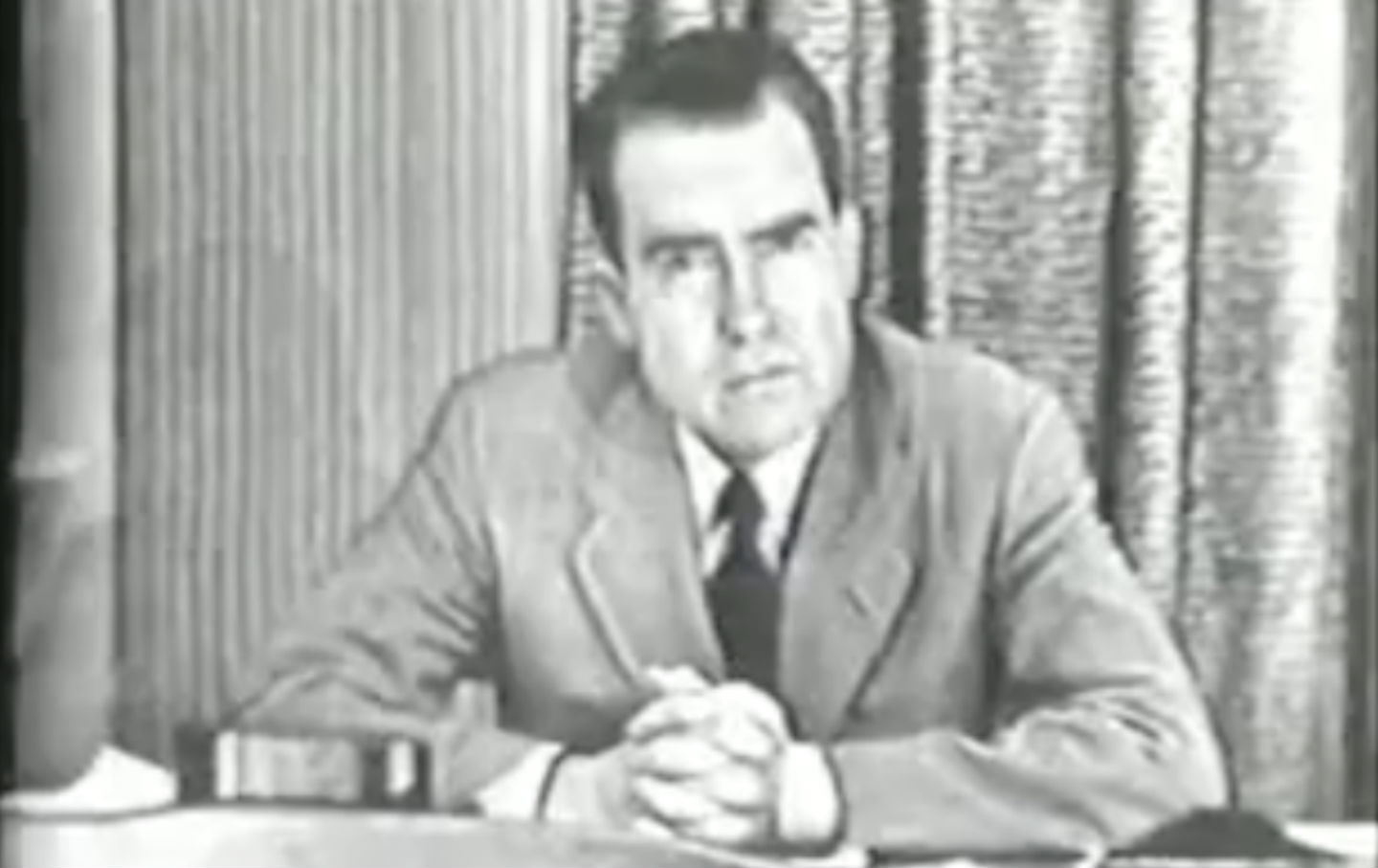
Screenshot of Richard Nixon giving his “Checkers” speech on September 23, 1952.
With only two months to go before the 1952 presidential election, Gen. Dwight D. Eisenhower’s running mate, a California representative named Richard Nixon, came under fire for permitting campaign supporters to maintain a fund to reimburse the Nixon family for various expenses. Eisenhower considered dropping replacing Nixon on the ticket until Nixon gave, on this day in 1952, the famous “Checkers” speech, defending himself from the accusations and pledging not to return a little cocker spaniel named Checkers sent to the Nixon family from a supporter in Texas. Despite the best efforts of The Nation, which had the lawyer Norman Redlich, later dean of the NYU Law School, wrote an article about the speech titled, “A Handbook for Demagogues,” the American people ate it up. Eisenhower kept Nixon on the ticket and they won the election. Redlich’s article is fascinating to read today; had more people seen what he saw at that early moment in Nixon’s career, there almost certainly would never have been a Nixon presidency.
Last Wednesday the American people were given a remarkable lesson in political demagoguery. Whatever one may think of Senator Nixon’s morals or wisdom, one must admit that in thirty minutes he made a historical contribution to the science of rabble-rousing. Lest his technique be obscured by the political controversy surrounding the whole incident, I will indicate its principles. 1. Pretend to be a poor ordinary man fighting the possessors of inherited wealth….
2. Appeal to people’s national origins regardless of how irrelevant it may be.…
3. Attack your opponents as Pro-Communist but don’t make the mistake that Joe McCarthy made—be subtle about it.…
4. If you area veteran, mention it but try to be casual. Discuss the battle stars in an offhand way but make it clear that you were under enemy fire.…
6. Appeal to people’s sympathy. Pretend to be the honest an who is viciously persecuted by smear artists. Plead with the people not to let your enemies take your pet dog away. Tell them that it hurts to bare your soul and your finances in public.…
7. Above all, never, never discuss the actual thing for which you were called to task by the American people. Never compare your voting record with the economic interests of those who contributed to your fund. Never raise the question whether it was right to take money from people who have a stake in the way you vote. Create your own ethical standards and then point out how rigidly you adhere to them. If you do all these things, a great general will laud your courage and you will be flooded with telegrams of sympathy and support. And if the people are really as dumb as you think they are, you may some day be President of the United States.
To mark The Nation’s 150th anniversary, every morning this year The Almanac will highlight something that happened that day in history and how The Nation covered it. Get The Almanac every day (or every week) by signing up to the e-mail newsletter.
Richard KreitnerTwitterRichard Kreitner is a contributing writer and the author of Break It Up: Secession, Division, and the Secret History of America's Imperfect Union. His writings are at richardkreitner.com.